Marble Rolling Pin Vs Wooden Vs Stainless Steel – What Is The Best Option?
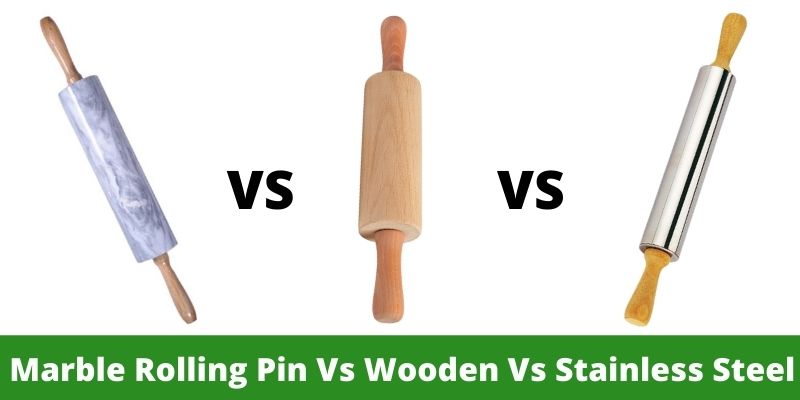
There are so many different kinds of mouth-watering pastries to make and a lot of ambitious home chefs out there tend to want to make them all. While ambition is never a bad thing, you shouldn’t go into kitchen battle under-equipped.
The fact of the matter is that different types of pastries and doughs require different kinds of rolling pins. And it may surprise some of you to hear that there are almost as many rolling pin options as there are pastries.
But today we will be focusing on the three main types and their differences: in general, stainless steel is easier to clean, marble pins can be chilled and wooden pins are lightweight and versatile. But let’s get into the details, shall we?
Overview of Marble Rolling Pins
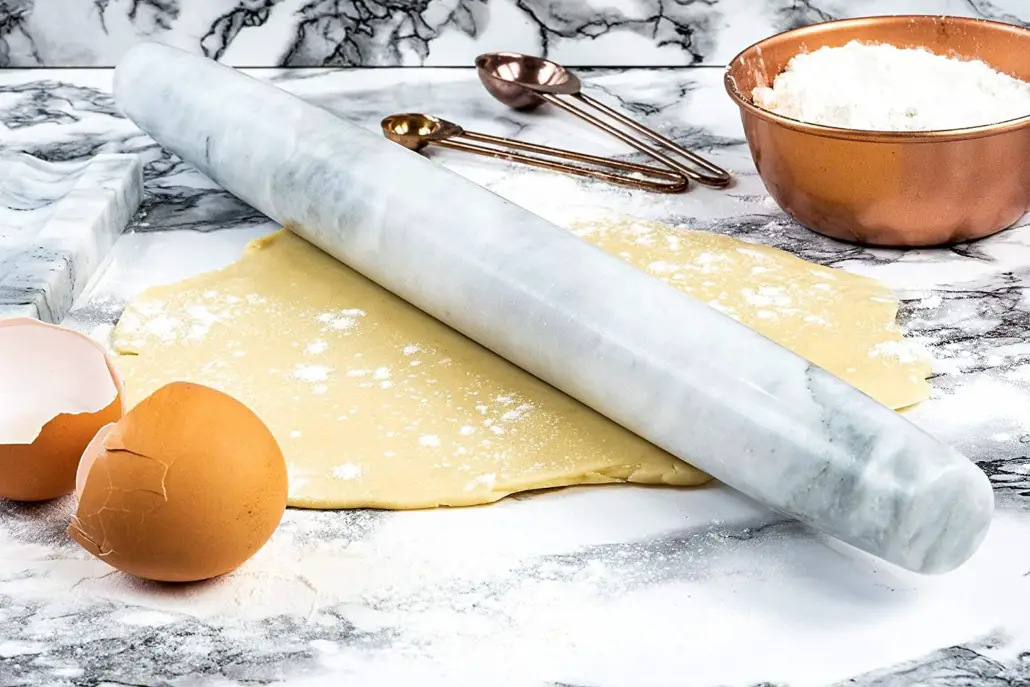
A lot of people are tempted to go with marble because it is naturally a beautiful stone material. In fact, we would say it is the most attractive material for rolling pins. But let’s take a look at their pros & cons.
Pros:
They can be chilled – Marble rolling pins can be placed in the freezer or refrigerator to help keep pie crusts and pastry puff cold when you’re rolling them out.
Heavy weight – When you are working with stiff and stubborn doughs, you will want a barrel that has some weight to it so you can get it as flat as possible.
Beautiful looks – Again, it’s hard to argue with the elegant look that marble rolling pins afford the home (or professional) chef.
Cons:
They may be too heavy – No kind of rolling pin will help you if you can’t manage them. Marble may be too heavy for some to use properly.
Marble changes color – Marble naturally changes color as it is exposed to oils, residues and dyes so what you buy today may not look the same a year from now
Check Out The Best Marble Rolling Pins Here:
Overview of Wooden Rolling Pins
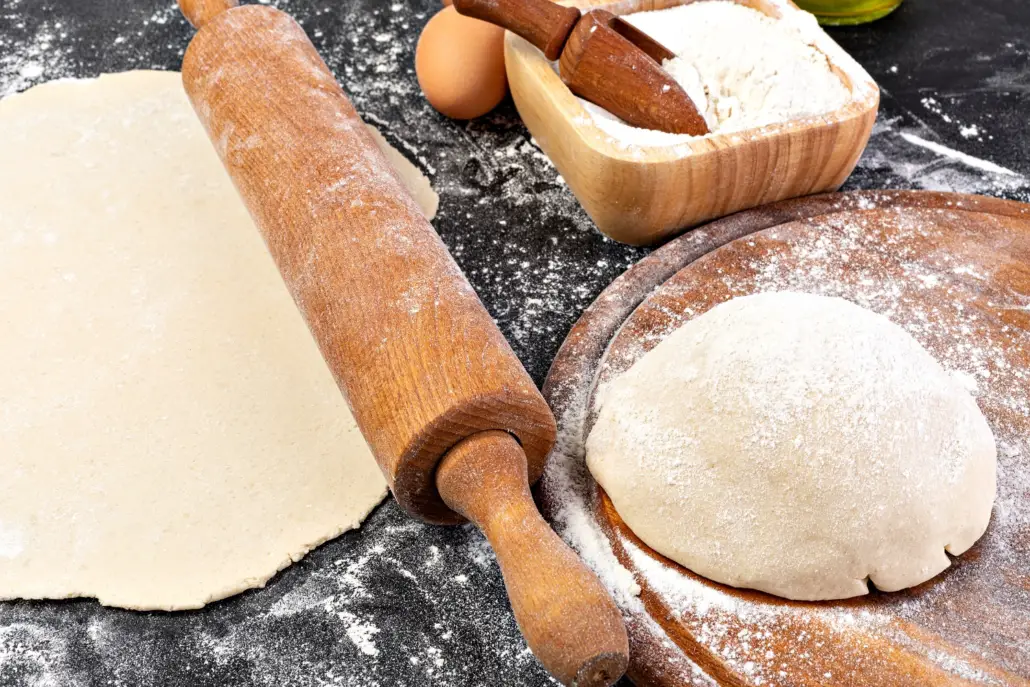
Wooden rolling pins are what most of us think of when we think of rolling pins. They have a timeless, classic quality to them. They are essentially comprised of a barrel with a dowel running through it that connects it to handles on either side. Ball bearings are usually used in the handles to achieve a smooth roll.
Pros:
Versatile use – Wooden rolling pins can be used for a wide variety of recipes including pizza, cookies, pie and biscuits.
Lightweight design – Wooden rolling pins are typically lighter than marble rolling pins so they are more manageable for some.
Affordable – These types of rolling pins can also be very affordable and come in a wide array of variations and styles.
Cons:
Porous – Wood is naturally porous so you may have a hard time getting your flour, dough and other ingredients off of the wooden barrel.
Less Maneuverability – By and large, wooden rolling pins are less maneuverable than marble and stainless steel pins.
Overview of Stainless Steel Rolling Pins
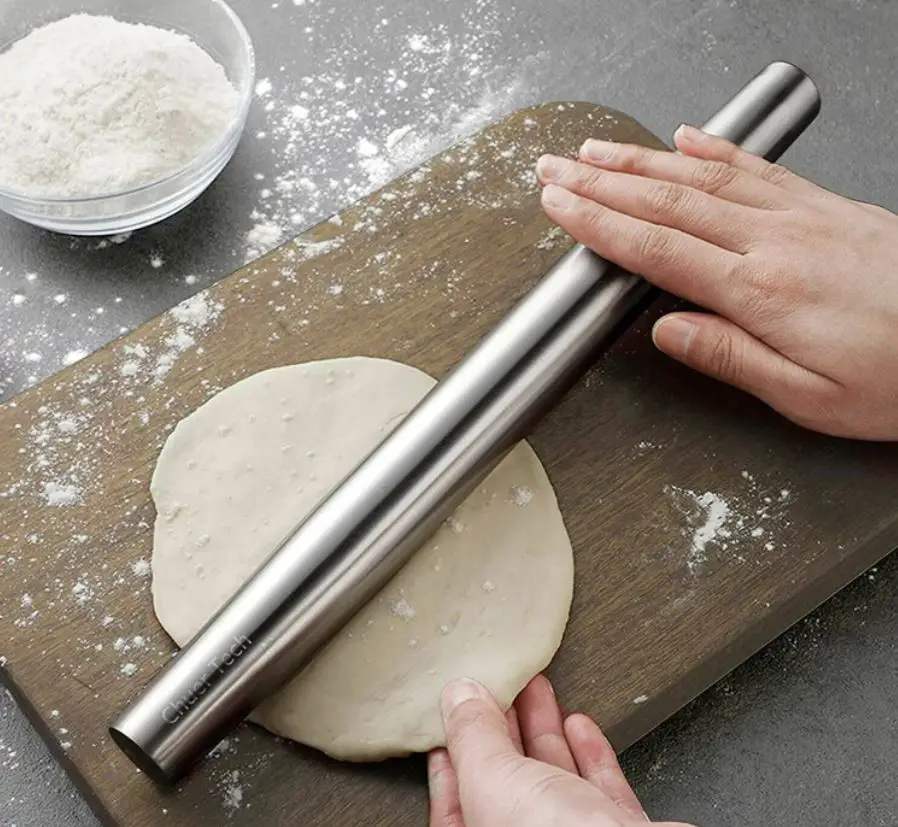
Stainless steel rolling pins are probably the least common in American kitchens but they still offer unique advantages over both marble and wooden rolling pins.
Pros:
Ultra Non-porous – Stainless steel is even less porous than marble so it is extremely easy to keep clean.
It can be chilled – Like marble rolling pins, you can chill a stainless steel rolling pin for when you are working with pie crusts or puff pastry.
Doesn’t stain – If you use your rolling pin for other types of recipes you may want to consider stainless steel. Stainless steel will not be affected by ingredients with dyes or oils.
Cons:
Weight – Stainless steel rolling pins are typically very light so you will have to put more force into the dough as you roll it with a stainless steel pin.
Slippery – Many home chefs steer clear of stainless steel rolling pins because they can get very slippery if you buy one without special handles.
Marble Vs. Wooden Rolling Pins
These are by far the two most popular choices but which one is for you? For the most part, chefs who don’t work with delicate pastries often may like the lighter weight of wooden pins. Marble pins would be better for chefs who commonly work with puff pastries and pie crusts as marble pins can be chilled.
Wooden Vs. Stainless Steel Rolling Pins
Stainless steel rolling pins are emerging as a favorite among chefs who want to keep their kitchen tools as clean as possible. Stainless steel is non-porous and most stainless steel rolling pins can be cleaned in the dishwasher – something that neither marble nor wood can boast.
On the other hand, beginner chefs tend to gravitate towards wooden rolling pins because they are more manageable and can be used in a wide variety of recipes.
Best Product for Each
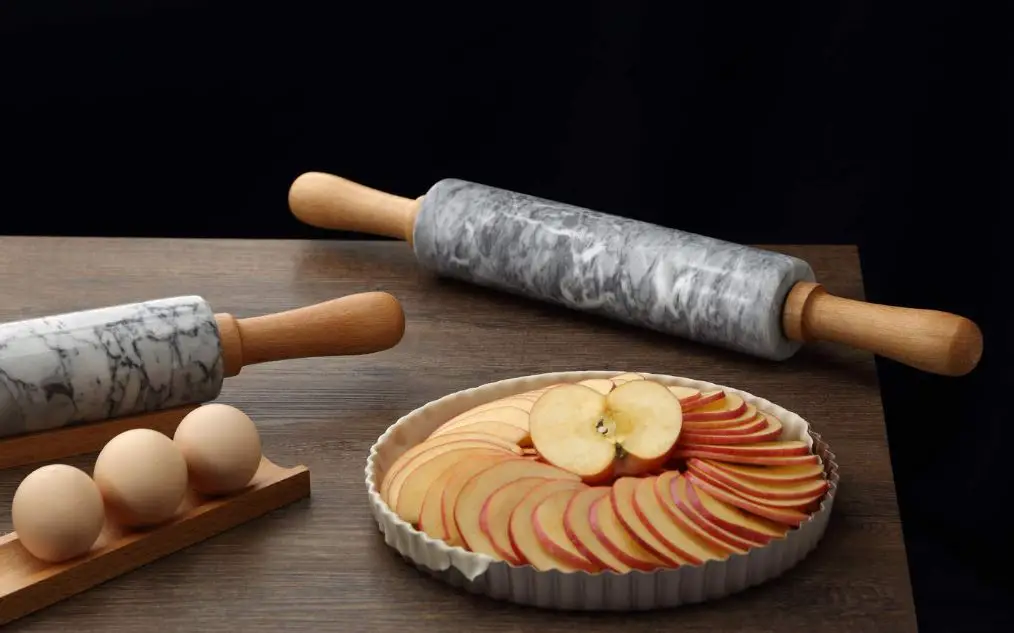
Wooden: Farberware Classic Wood Rolling Pin
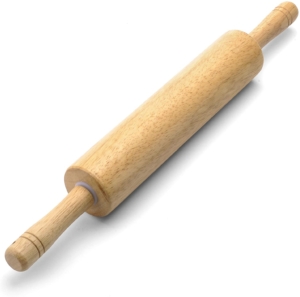
This is an affordable rolling pin that’s made of natural rosewood so it is water-resistant. It’s 17.7 inches long (including handles) and has a hefty, 2.5” diameter barrel.
Marble: Fox Run White Marble Rolling Pin
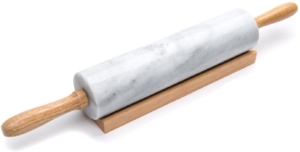
The Fox Run White Marble Rolling Pin has wooden handles and comes with it’s own wooden cradle. It weighs 4.6 pounds too so you won’t have to put a lot of force into it.
Stainless Steel: Hifye French Metal Baking Rolling Pin
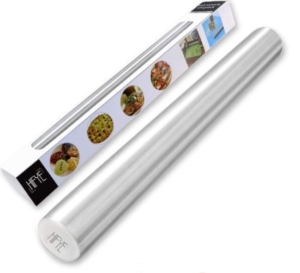
This is a 16” stainless steel rolling pin that’s lightweight and super easy to clean. It also will not impart any metallic taste to your foods.
FAQ’s
Q: Is silicone any good?
Silicone rolling pins are non-stick and very easy to clean.
Q: Does dough stick to stainless steel?
Dough will not stick to most stainless steel rolling pins.
Q: Does dough stick to wood
One of the downsides of wooden rolling pins is that dough can stick to them.
Q: Does dough stick to marble?
Marble is non-porous so dough should not stick to it.
Q: Is there non stick products?
Yes, silicone and marble rolling pins are non-stick.
Q: French rolling pin Vs regular
The main difference is that French rolling pins don’t have handles.
Final Thoughts
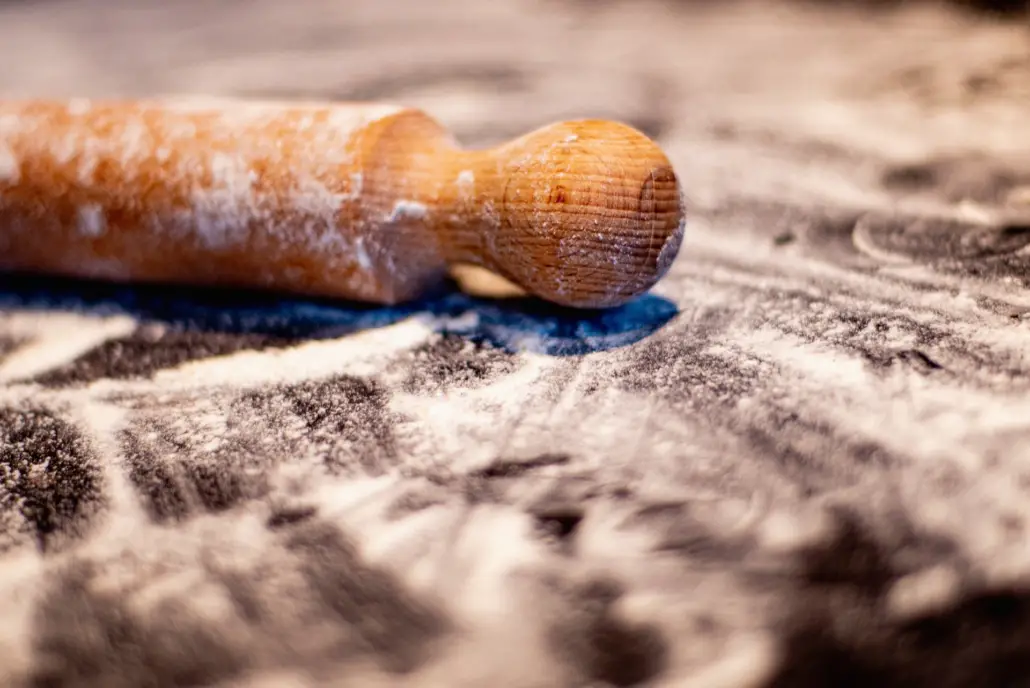
As you can see, you have a lot of options when it comes to rolling pins. We personally like marble pins as they provide great looks and can be used with doughs that need to stay cold. But your cooking needs will not be the same as the next person’s so make your choice carefully.
You may decide that you want all three kinds: stainless steel, marble and wooden. And that’s a solid choice too as these are relatively inexpensive kitchen tools. Be sure to check out these products for an easier and more enjoyable time in the kitchen!


